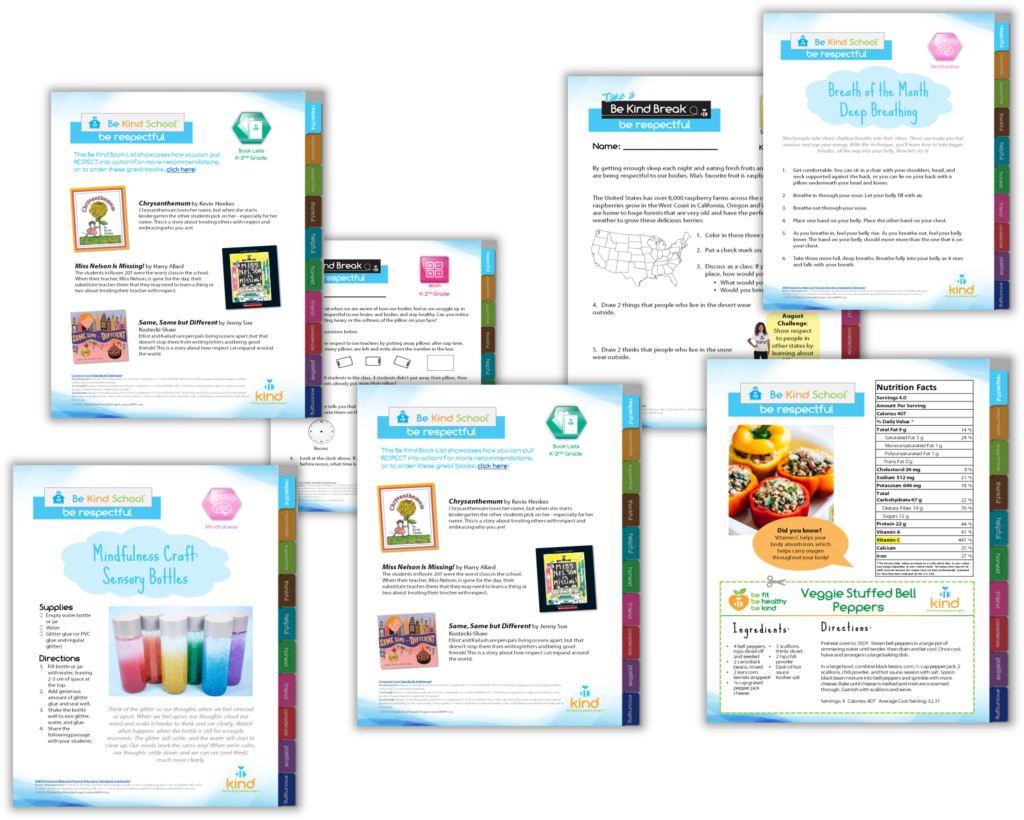- About
- Programs
- After School Classes
- All-School Assemblies
- The BE KIND Business
- The BE KIND Community Education Center
- The BE KIND SCHOOL
- BE KIND on the MOVE
- Classroom Resources
- #CyberSkills
- Family Engagement
- Fitness Programs
- Gardens
- Grace’s Group
- Health & Wellness
- Summer Programs
- Teacher Training
- Wellness Wednesday
- Athletes for Arizona
- Events
- Get Involved
- Donate
Green Therapy: Cultivating Happiness and Healing Through Plants!

Blooms and Benefits:
Planting the Seeds of Self-Care and Serenity!
Welcome to our green oasis, where the air is fresher, the mood is brighter, and the possibilities are endless! For Earth Month, and today’s Wellness Wednesday, we’re diving deep into the wonderful world of plants and gardening, exploring the multitude of benefits they bring to our lives. From the simple joy of nurturing a leafy friend to the satisfaction of growing your own food, we’ll uncover the magic of plant care and cultivation. Join us as we embark on a journey through cleaner air, greener spaces, and the mental wellness oasis that is gardening. Whether you’re a seasoned plant enthusiast or a budding green thumb, there’s something here for everyone to dig into. So, grab your gardening gloves and let’s dig in!
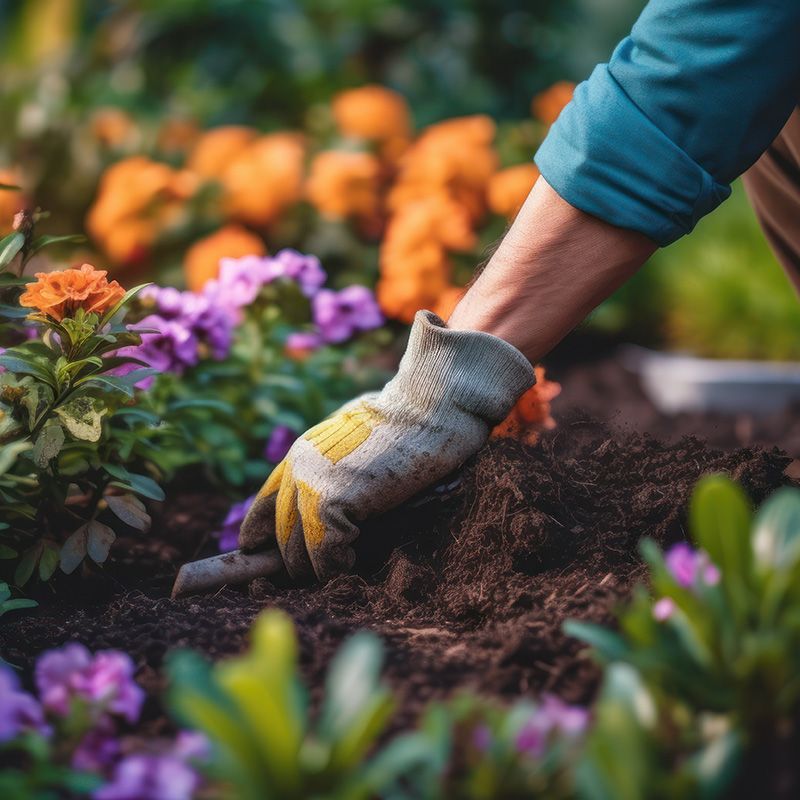
A Green Thumb
As Earth Month approaches, there’s no better time to cultivate your green thumb and make a positive impact on the planet! Whether you’re an experienced gardener or just starting out, here are some tips from Port Farms to help you embrace sustainable gardening practices and foster a deeper connection with nature:
- Start Small:
Begin with a few easy-to-grow plants or herbs that are well-suited to your climate and available space. This will help build your confidence and ensure success in your gardening endeavors. This could be indoor plants or outdoor plants! It is all about what is available to you!
- Choose Native Plants:
Opt for native plants in your garden, as they are adapted to your local climate and soil conditions. Native plants also provide essential habitat and food sources for local wildlife.
- Conserve Water:
Practice water-efficient gardening techniques such as mulching, drip irrigation, and rainwater harvesting to minimize water waste and promote healthy plant growth.
- Compost:
Set up a compost bin or pile to recycle organic waste from your kitchen and garden. Compost enriches the soil, reduces the need for synthetic fertilizers, and diverts organic waste from landfills.
- Avoid Chemicals:
Say no to synthetic pesticides, herbicides, and fertilizers that can harm beneficial insects, wildlife, and soil health. Instead, use organic and natural alternatives to maintain a healthy garden ecosystem.
- Attract Pollinators:
Plant flowers, herbs, and shrubs that attract pollinators such as bees, butterflies, and hummingbirds. Pollinators play a crucial role in plant reproduction and ecosystem health.
- Practice Crop Rotation:
Rotate your vegetable crops each season to prevent soil depletion, minimize pest and disease problems, and maintain a balanced garden ecosystem. Take a look at an article from Fine Gardening!
- Support Biodiversity:
Embrace diversity in your garden by growing a variety of plant species or wild patches/ mini meadows in your yard. Biodiverse areas are more resilient to pests, diseases, and environmental changes and are incredibly beneficial for our wildlife!
- Educate Yourself:
Take advantage of online resources, books, and community gardening events to learn more about sustainable gardening practices, local plant species, and environmental stewardship
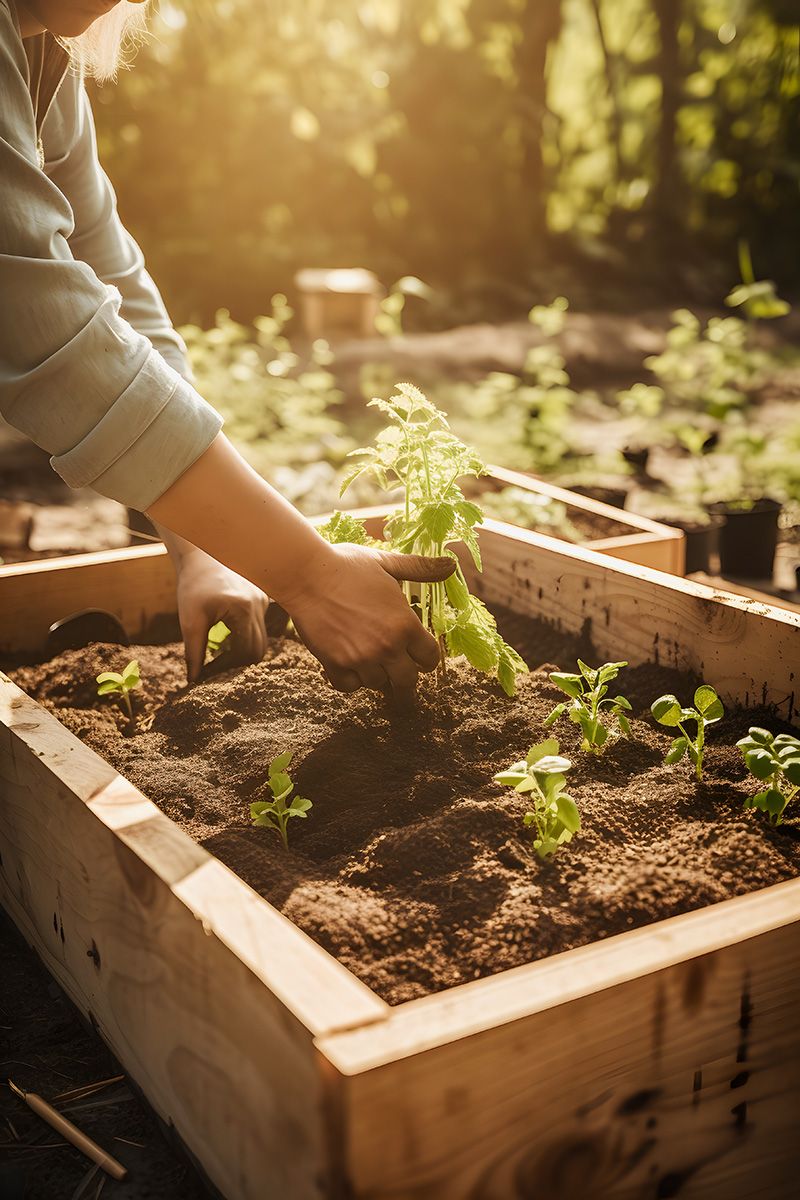
Best Plants to Grow for Meals
For home cooks looking to grow their own ingredients or those who want to try something new, here are some versatile and flavorful plants that are perfect for the kitchen garden:
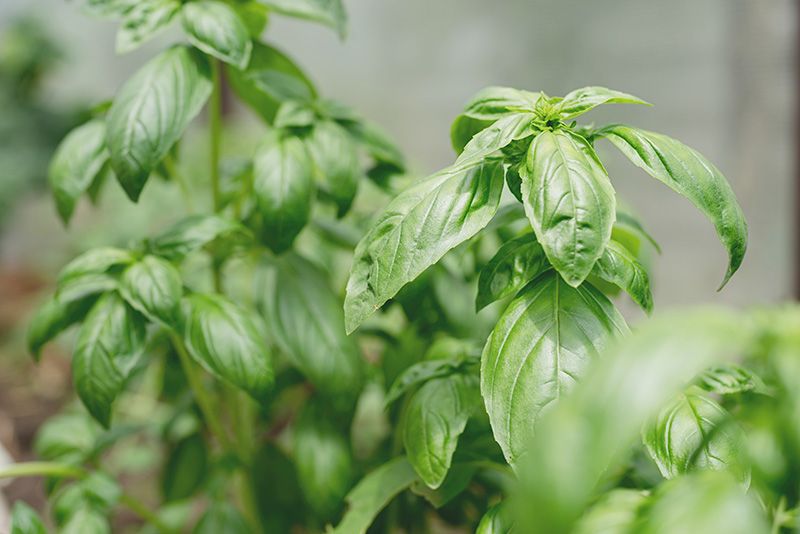
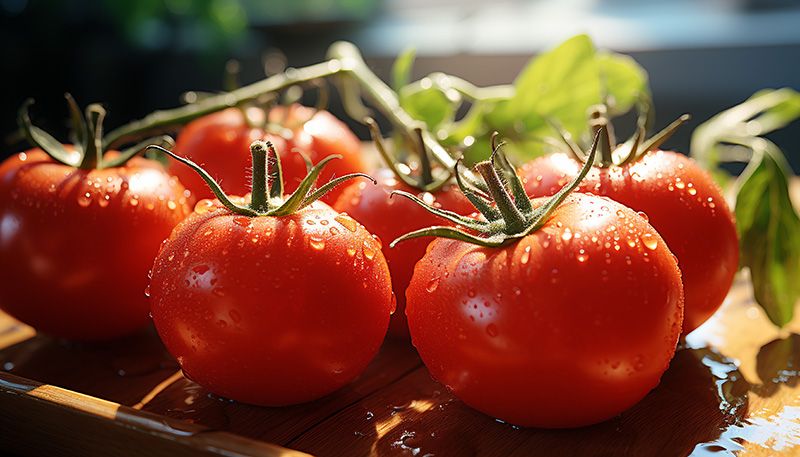
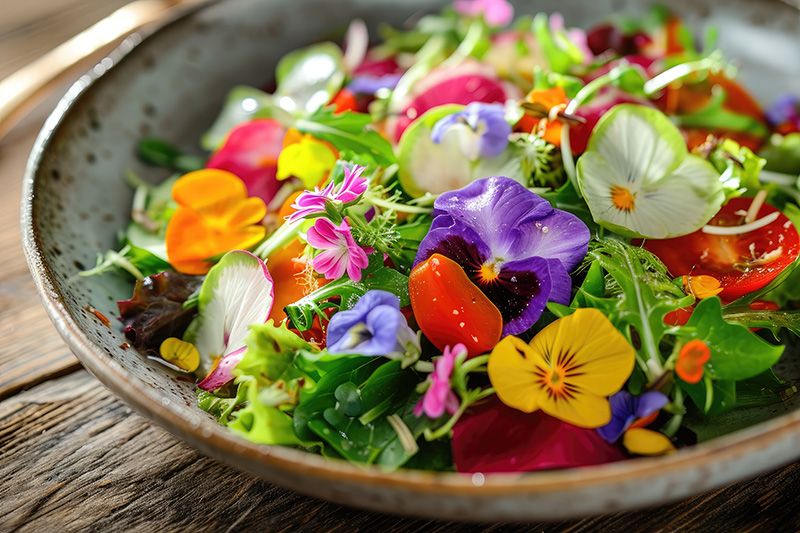
- Herbs:
- Basil: Adds a fresh, aromatic flavor to salads, pasta dishes, and sauces.
- Rosemary: Perfect for seasoning roasted meats, potatoes, and bread.
- Thyme: Enhances the flavor of soups, stews, and roasted vegetables.
- Parsley: Adds brightness to salads, soups, and Mediterranean dishes.
- Mint: Ideal for making refreshing beverages, desserts, and savory dishes like lamb.
- Leafy Greens:
- Lettuce: Provides the base for salads, wraps, and sandwiches.
- Spinach: Versatile green for salads, stir-fries, quiches, and smoothies.
- Kale: Nutrient-packed green for salads, sautés, soups, and smoothies.
- Swiss Chard: Adds color and flavor to sautés, stir-fries, and grain bowls.
- Tomatoes:
- Cherry Tomatoes: Perfect for snacking, salads, and pasta dishes.
- Beefsteak Tomatoes: Ideal for slicing and serving fresh sandwiches and burgers.
- Plum Tomatoes: Great for making sauces, salsas, and soups.
- Peppers:
- Bell Peppers: Adds sweetness and crunch to salads, stir-fries, and fajitas.
- Jalapeños: Adds heat to salsas, nachos, and spicy dishes.
- Banana Peppers: Perfect for pickling, stuffing, or adding to sandwiches.
- Scallions and Chives:
- Scallions: Adds mild onion flavor to salads, stir-fries, and garnishes.
- Chives: Perfect for adding a mild onion flavor to dips, baked potatoes, and salads.
- Culinary Flowers:
- Edible Flowers (e.g., nasturtiums, pansies, calendula): Adds color and flavor to salads, desserts, and garnishes.
- Root Vegetables:
- Radishes: Adds crunch and peppery flavor to salads and sandwiches.
- Carrots: Great for snacking, roasting, grilling, and adding sweetness to soups and stews.
- Culinary Herbs (for teas and infusions):
- Lemon Balm: Adds a lemony flavor to teas, salads, and desserts.
- Lavender: Perfect for making teas, flavoring baked goods, and infusing syrups.
These plants are easy to grow in containers or garden beds and can elevate your home-cooked meals with fresh, vibrant flavors straight from the garden to your plate! Crescent Garden has some great recipe ideas as well as how much of each plant to grow!
Benefits of Gardening
- PhysicalGardening offers a plethora of health benefits beyond just beautifying your outdoor space. Engaging in various physical activities such as digging, planting, weeding, and watering provides moderate aerobic exercise, improving strength, flexibility, and endurance.
- MentalSpending time outdoors surrounded by nature and engaging in the repetitive motions of gardening can lower stress levels and promote relaxation, as evidenced by reduced cortisol levels, the hormone associated with stress. Additionally, gardening can positively impact mood and mental well-being by promoting feelings of accomplishment, satisfaction, and happiness through nurturing plants and watching them grow.
- CognitiveExposure to sunlight while gardening allows the body to absorb essential vitamin D, crucial for bone health, immune function, and mood regulation. While healthy for the body, don’t forget about the mind. Practicing mindfulness and being fully present in the moment while gardening promotes relaxation and inner peace. Gardening stimulates the brain, improving cognitive function, memory, and problem-solving skills, as it requires planning, organization, and attention to detail.
- EnvironmentalIn the end, gardening fosters a deeper connection with nature and the natural world, leading to reduced anxiety, improved mood, and increased feelings of happiness and well-being. Growing your own fruits, vegetables, and herbs provides access to fresh, nutritious produce, higher in vitamins, minerals, and antioxidants compared to store-bought counterparts.
- SocialDepending on how you choose to do so, gardening can be a social activity, allowing for connections with family, friends, neighbors, and fellow gardeners, whether through joining a community garden or participating in gardening clubs, providing opportunities for social interaction and support. Overall, gardening is a holistic activity that promotes physical health, mental well-being, and emotional balance, enriching life in countless ways.
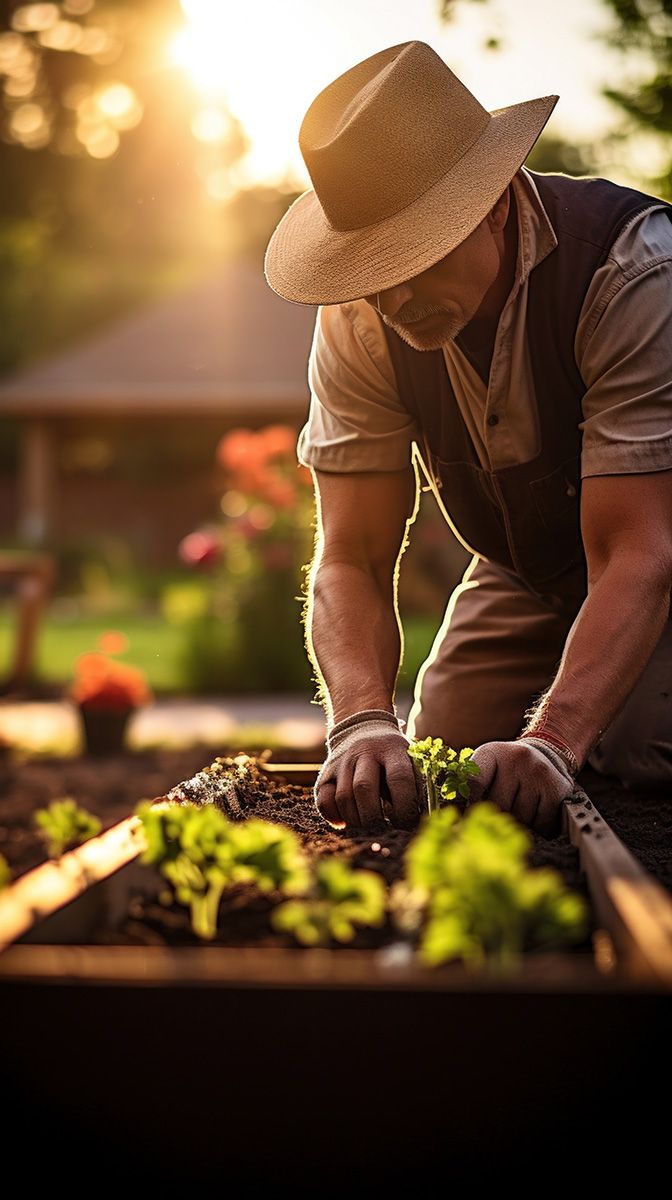
Learn More about The Be Kind People Project®
- Programs
- After School Classes
- All-School Assemblies
- The BE KIND Academy
- The BE KIND Business
- The Be Kind Break
- The BE KIND School
- The BE KIND on the MOVE
- #CyberSkills
- Family Engagement
- Fitness Programs
- Gardens
- Grace’s Group
- Health & Wellness
- Summer Programs
- Teacher Training
- Wellness Wednesday
- Athletes for Arizona
Copyright © The Be Kind People Project | Privacy Policy

